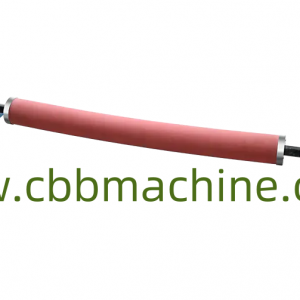Custom plush toys are more than just soft, cuddly products—they are cherished keepsakes, promotional items, and retail products that require thoughtful packaging. A well-designed packaging solution enhances brand appeal, protects the toy during storage and transit, and aligns with sustainability trends. This article explores various packaging options for custom plush toys, considering factors such as durability, aesthetics, and eco-friendliness.

Key Considerations for Plush Toy Packaging
Before selecting a packaging type, several factors must be considered to ensure that the plush toys reach consumers in perfect condition while creating a memorable unboxing experience.
1. Protection and Durability
Plush toys are soft and can be compressed, but they still require protection against dirt, moisture, and damage during shipping. The right packaging should maintain the toy’s shape while preventing contamination.
2. Brand Appeal and Customization
Packaging serves as an extension of the brand. Custom printing, vibrant colors, and unique designs can make the packaging more attractive and recognizable. Adding logos, characters, or product stories enhances the customer experience.
3. Sustainability and Eco-Friendliness
As consumers become more environmentally conscious, sustainable packaging options, such as biodegradable or recyclable materials, are in high demand. Using eco-friendly packaging can boost brand reputation and reduce environmental impact.
4. Cost and Practicality
While high-end packaging enhances aesthetics, cost-effectiveness remains a crucial factor. The packaging should balance quality and affordability, especially for mass-produced plush toys.

Common Packaging Solutions for Custom Plush Toys
Various packaging options are available, each suited for different markets and branding strategies.
1. Poly Bags (Clear or Printed)
Poly bags are one of the simplest and most cost-effective solutions for plush toy packaging.
Advantages:
Lightweight and inexpensive.
Transparent versions allow customers to see the product.
Custom printing can be added for branding.
Can include resealable or biodegradable options.
Best For: Budget-friendly packaging, mass production, or toys sold in bulk.
2. Window Boxes
Window boxes offer a combination of protection and visibility, with a clear plastic window allowing customers to see the plush toy without opening the package.
Advantages:
Protects the toy while displaying its details.
Provides branding space for logos, character descriptions, and product details.
Enhances perceived value, making it ideal for premium plush toys.
Best For: Retail displays, collectibles, and licensed character plush toys.
3. Cardboard Boxes
Cardboard boxes provide sturdy protection and ample space for branding and customization.
Advantages:
Strong and protective for shipping and retail displays.
Customizable with full-color printing, embossing, and matte/gloss finishes.
Can be made from recycled and biodegradable materials.
Best For: High-end plush toys, subscription boxes, and collector’s editions.
4. Fabric or Drawstring Bags
Fabric or drawstring bags add a premium touch to plush toy packaging while being reusable.
Advantages:
Enhances the gift-like presentation.
Can be customized with embroidery or printed designs.
Reusable and eco-friendly alternative to plastic bags.
Best For: Limited-edition plush toys, promotional giveaways, or luxury plush items.
5. Clamshell and Blister Packaging
Clamshell and blister packaging involve encasing the plush toy in a transparent plastic mold.
Advantages:
Offers maximum protection against dust and damage.
Provides tamper-proof security for retail settings.
Allows visibility while keeping the toy secure.
Best For: Small-sized plush toys, retail stores, and collectible plush items.
6. Tube Packaging
Tube packaging, made from cardboard or plastic, is an innovative and eye-catching way to package plush toys.
Advantages:
Unique cylindrical shape enhances shelf appeal.
Can be made from eco-friendly materials.
Provides strong protection during transit.
Best For: Specialty plush toys, gift sets, and promotional items.

Sustainable Packaging Trends for Plush Toys
With growing environmental concerns, custom plush toy manufacturers are shifting toward sustainable packaging solutions. Here are some eco-friendly options:
1. Recyclable and Biodegradable Materials
Many brands are now using recycled cardboard, paper-based wraps, and biodegradable poly bags to minimize waste.
2. Minimalist Packaging
Reducing excess packaging materials not only lowers costs but also decreases environmental impact. Simple yet effective packaging, such as fabric pouches or small cardboard boxes, aligns with sustainability goals.
3. Compostable Packaging
Compostable packaging materials, such as plant-based plastics and biodegradable cardboard, are becoming popular alternatives to traditional plastic packaging.
4. Reusable Packaging
Encouraging consumers to repurpose packaging, such as fabric bags or decorative boxes, adds value while reducing waste.
Summary
Choosing the right packaging for custom plush toys involves balancing protection, branding, cost, and sustainability. Whether opting for cost-effective poly bags, premium window boxes, or eco-friendly fabric bags, the packaging should enhance the customer experience while safeguarding the product. With the rise of sustainable packaging trends, businesses can also make a positive environmental impact while delivering high-quality plush toys to their customers.





